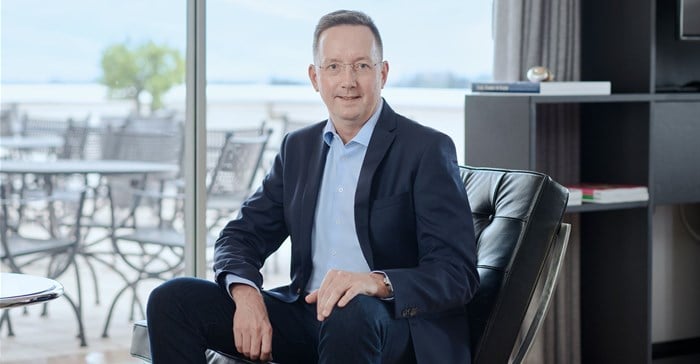Fashion and lifestyle retail group TFG grew retail turnover for the first half of the financial year by 23.5%, boosted by its Tapestry Home Brands acquisition, local clothing manufacturing drive and continued store rollout and upgrades.

TFG CEO Anthony Thunstrom. Source: Supplied
The group, which owns retailers including Foschini, Markham and @home, said it achieved this turnover without sacrificing margin as demand for its products continued to increase and resulted in gross profit growth of 24.8% to R11.6bn. Strong trade, along with the company's continued focus on resetting the cost base, delivered growth of 44.5% in earnings per share.
This was achieved despite continued disruptions in all territories during the period, including increased levels of load shedding in South Africa where close to half a billion rands of turnover was lost, severe flooding in Australia and double-digit inflation in the UK.
TFG Australia turnover grew 48.7% and expanded gross profit margins by a further 4.9%, while TFG London achieved top-line growth of 21.2%, against a backdrop of cooler consumer spending with operating profit margins of 8.0%.
132,000 trading hours lost to load shedding
“In TFG Africa, the post-pandemic economic recovery is progressing gradually, showcased by surprising resilience in consumer spending, despite the high unemployment rates, reduced consumer confidence and increased levels of Eskom load shedding,” said TFG CEO Anthony Thunström.
The spike in load shedding resulted in approximately 132,000 lost trading hours during the first half of FY2023. This was 2.6 times more than the trading hours lost during the comparative period.
The impact of load shedding is being mitigated by investing in backup power solutions, installed across stores throughout South Africa. TFG has also deployed mobile point-of-sale devices across key stores to enable trade during load shedding.
Bash and TFG Rewards
In June, TFG launched in beta a new fashion and lifestyle shopping platform, Bash. This platform will become a home for all of TFG’s brands as the group pursues its vision of "creating remarkable omnichannel experiences" for its customers. At full launch the platform will offer more than 100,000 SKUs, eclipsing local competitors.
The group also continued to grow its Rewards customer base, adding approximately a million new members in the year to date and bringing the total to almost 30 million.
“One out of every two South Africans is now a TFG Rewards member - and we are working on the rest,” said Thunström. “Rewards customers are proven to represent significantly higher value, are higher frequency shoppers with TFG and have a higher uptake of value-added services.”
The group continued to invest in its extensive store build-out and opened 159 new stores in the period. These openings, along with a continued programme of store refurbishments and right-sizing translates into the group delivering an average of two store projects a day.
Tapestry deal
TFG outperformed market growth in both apparel and homeware categories.
In apparel, TFG said that growth was driven by strong speciality brands, the group's sourcing and quick response advantage through local manufacture, and store build-out, particularly in non-metro areas. In homeware, the sustained expansion of the Jet Home format and stores, and the diversification across income segments and fashionability categories through the acquisition of Tapestry, contributed to robust growth, the group said.
“Since the acquisition of Tapestry Home Brands from 1 August, we have integrated that business and introduced TFG credit to all Tapestry stores. Furthermore, we have leveraged our group scale to secure key new locations for the Tapestry brands,” said Thunström.
“The acquisition seeks to provide the group with exposure to new and diverse products and categories as well as gaining new customers to complement the TFG customer base in existing categories. The transaction is in line with TFG’s stated strategy of vertical integration in key product categories and the continued development of its quick response local manufacturing capability.”
6,000 new jobs in 6 months
“The group continues to demonstrate its resilience and agility and is best positioned to trade through cyclical headwinds and stretched consumer wallets in all our territories,” said Thunström.
“We continue to invest in our key strategic initiatives to further strengthen our differentiated business model. We have made progress on our strategic objectives and speciality brand business portfolio, and continue to eye organic and inorganic growth opportunities. A specific focus will be on the Tapestry business to maximise the value from our investment,” Thunström said.
“In the context of TFG’s investment in excellence, and particularly in people that have the potential to drive change in South Africa and TFG, I’m especially proud of the more than 6,200 jobs we have added over the past six months and the launch of the Data Science and Leadership Fellowship, which will fund outstanding young South African students in the field of data science.
“Additionally in the last six months, TFG has established a Sustainable Design Incubator which is already supporting its first cohort of young emerging designers.
“These are prime examples of our commitment to sustain ourselves and our stakeholders into the future through fashion that connects, shares and restores,” Thunström said.











































